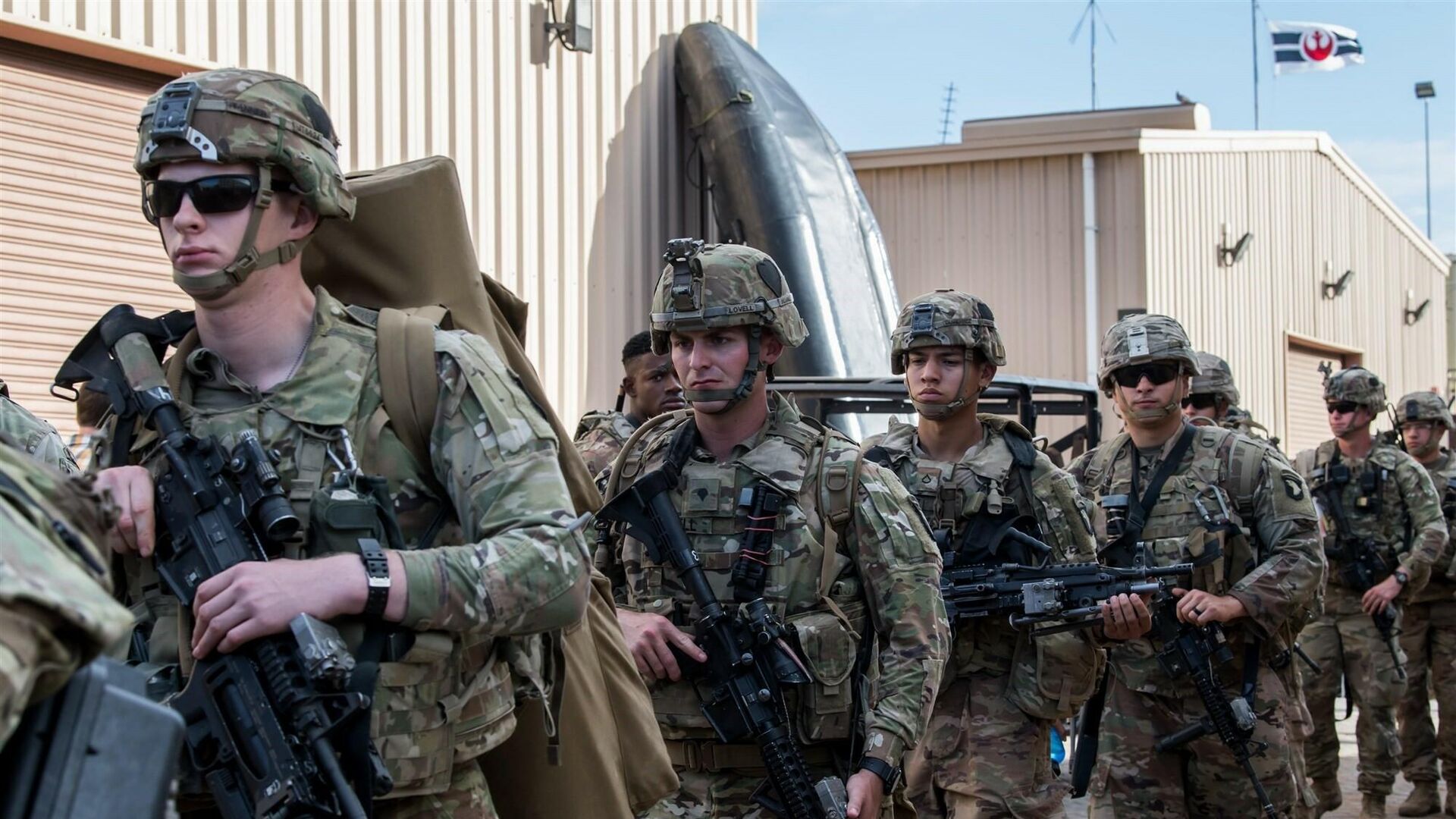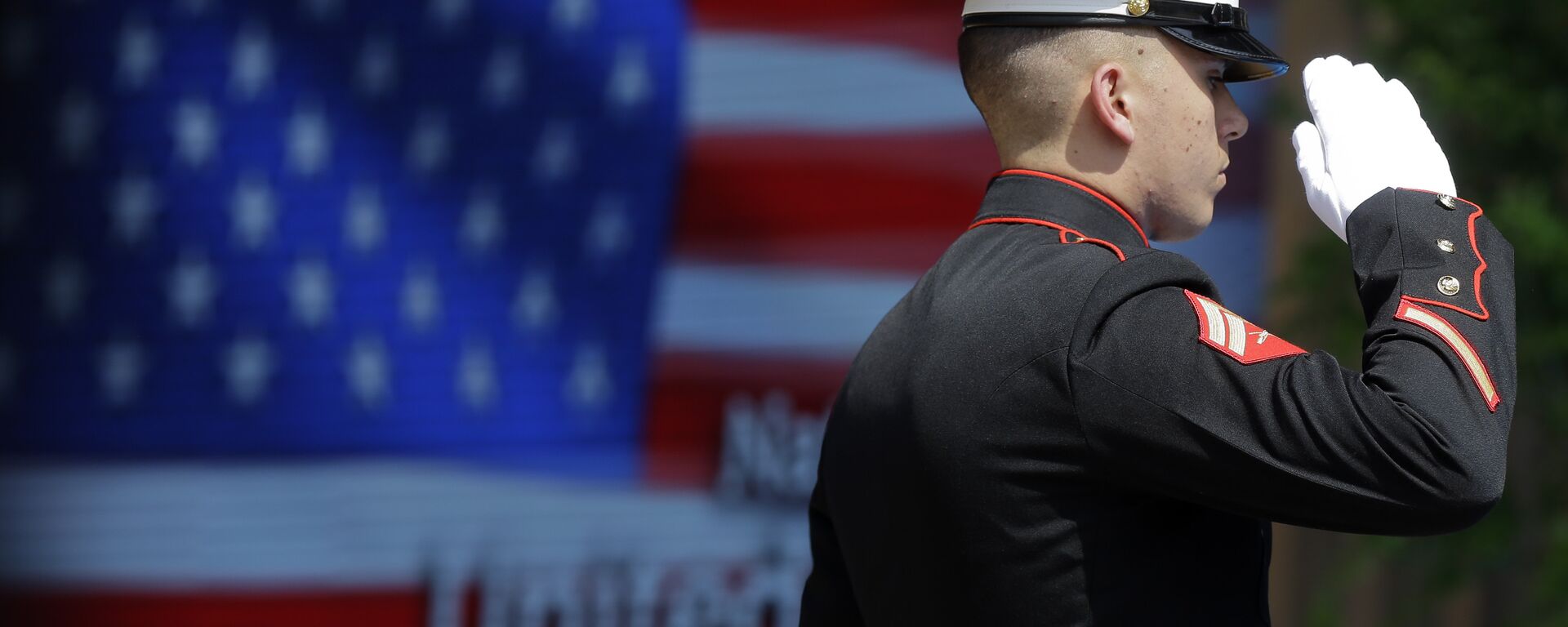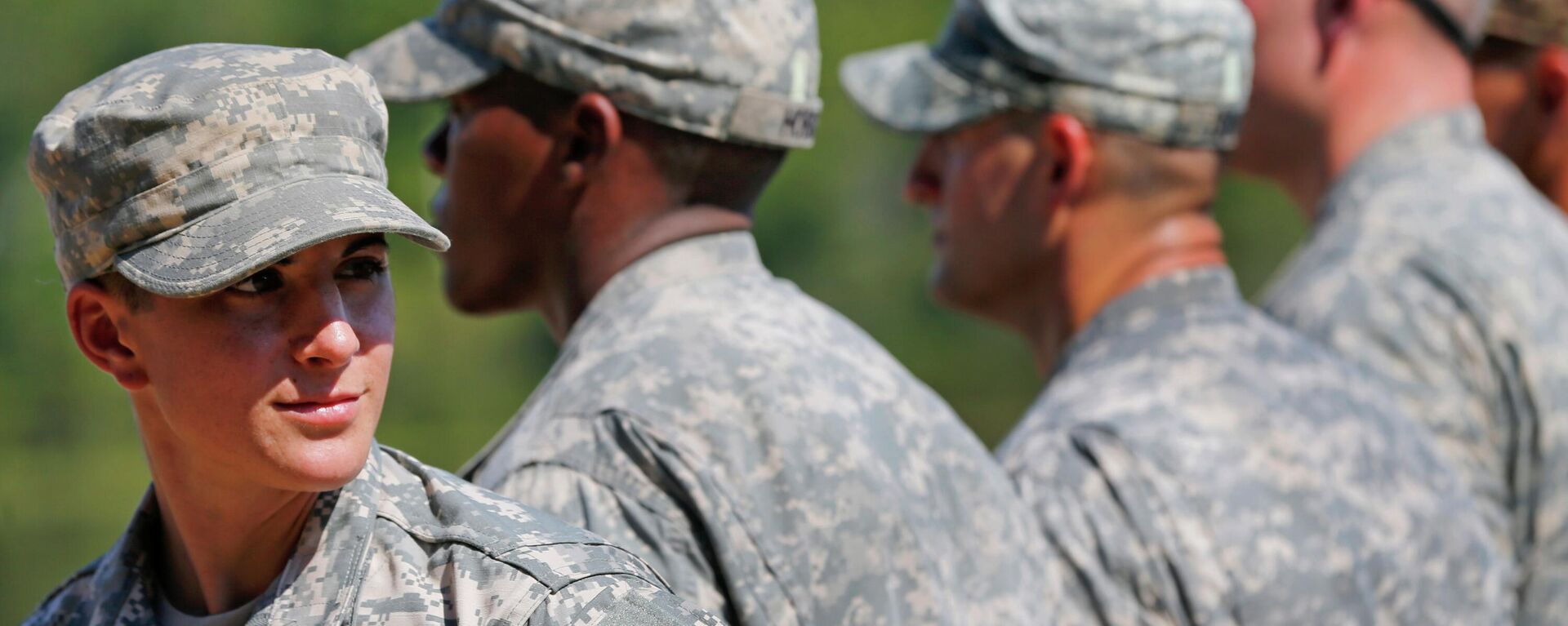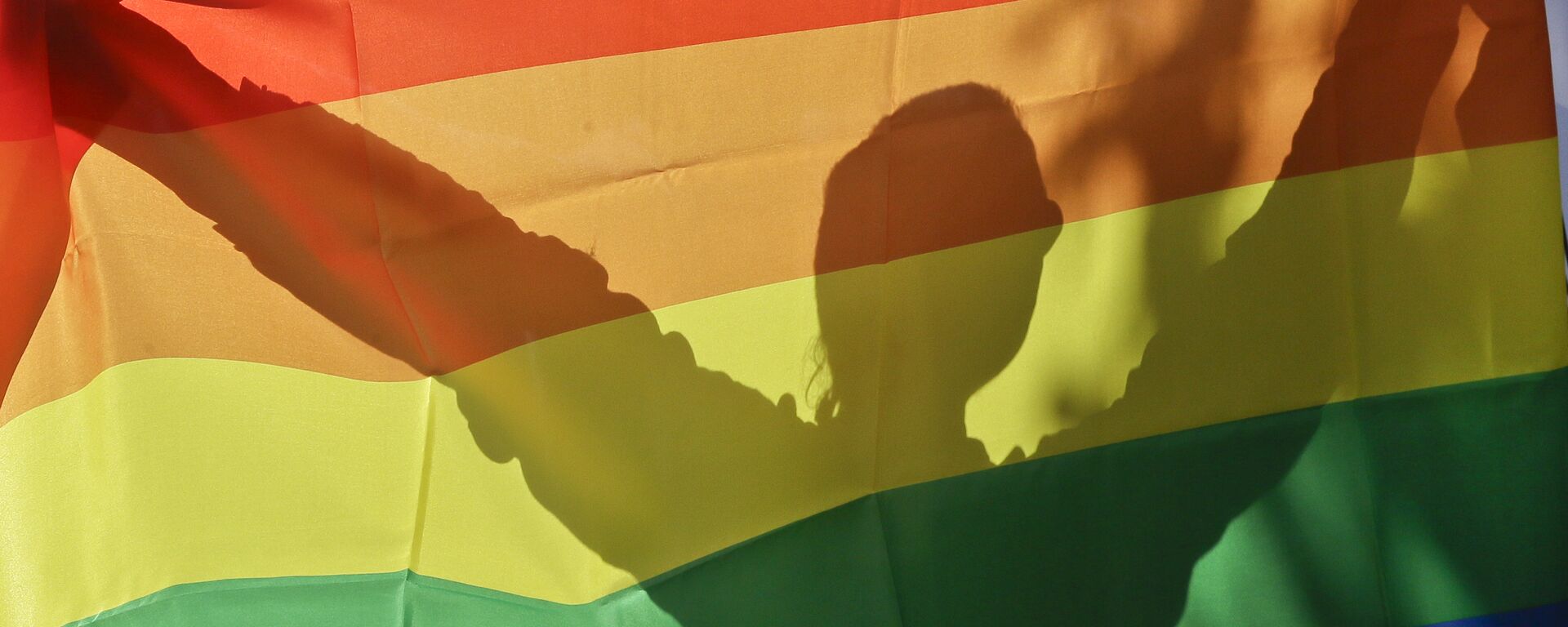Ex-DoD Analyst: Spike in US Military Sex Abuse Triggered by Lowered Recruiting Standards
19:16 GMT 02.09.2022 (Updated: 12:45 GMT 13.04.2023)

© Photo : U.S. Army
Subscribe
Reported sexual assaults across US military branches mounted by 13% last year, allegedly driven by significant increases in army and the navy recruitment, the Associated Press wrote on September 1.
"When you see the difference in the increase of reports of sexual abuse in the army and navy, relative to the air force and the marines, the first correlation is the quality of recruits that have been accepted into the branches of the military over the past decade or more," explained retired US Air Force Lt. Col. Karen Kwiatkowski, a former analyst for the Department of Defense.
Speaking to Associated Press on conditions of anonymity, military officials have recently revealed that nearly 36,000 service members said that they had experienced unwanted sexual contact in a survey. This constitutes a considerable increase over the roughly 20,000 who complained about alleged abuses in a similar survey in 2018.
The latest overall increase in sexual misconduct is largely fueled by a nearly 26% jump in reports involving army soldiers, according to the media outlet. It's the largest increase for the branch since 2013, when such reports soared by 51%.
At the same time, the US Navy has seen a 9% spike in reports, while that of the US Air Force and Marine Corps amounting to slightly more and slightly less than 2%, respectively.
Kwiatkowski pointed out that virtually all military branches of the US Armed Forces have continually lowered recruiting standards over time. However, none have done it more radically than the US Army, she remarked.
Accordingly, the military now includes extensive waivers for English language mastery, high school degrees, medical conditions, and – what's even more disturbing – criminal records, according to the former Pentagon analyst.
"A poorly-educated, English-language-challenged recruit, who may have issues with authority, is difficult train – especially when it comes to the sometimes ambiguous and culturally sensitive area of sexual harassment and sexual violence," explained Kwiatkowski. "Further, the quality of those in the military tasked to demonstrate good behavior and train others in this area may themselves be prone to abuse, and/or tolerating it. If both the trainers and the trainees are predisposed to a culture that disrespects women and men, organizational culture will be slow to change."
According to AP, the increase in reports describing sexual misconduct is particularly troublesome for the US Army which is already struggling to meet its recruiting goals. The recent revelations may prompt concerns over safety and well-being of US recruits, the media warned.
"Frankly, any person who is thinking about entering the US military must understand that the system is not going to take care of you in this regard – there are known risks, and protecting yourself in this area, including have a conscious plan for dealing immediately with sexual assault or harassment whenever you see it or experience it, needs to be job number one for everyone," Kwiatkowski highlighted.
Diversity Training as Lip Service for Dems' Base
The Associated Press warned that the latest figures pertaining to sexual abuse among the US military are "certain to anger lawmakers on Capitol Hill." US lawmakers have repeatedly been subjected to criticism over the Pentagon's efforts to get a handle on sexual crimes and misconduct.
At the same time, AP's bombshell report has indirectly shed light on the failure of the Democratic administration's diversity training meant to raise awareness about equity and inclusion.
"[D]iversity, equity and inclusion efforts function to build work environments that are welcoming and supportive of all people and all types of families, not just to diversify the makeup of the workforce," the US Army website reads.
According to Kwiatkowski, this political emphasis on diversity – a trend which emerged long before the Biden administration – is "lip service to a medium-sized Democratic voting bloc, rather than a principled stand regarding the value of people who are different and unique, and have value in an organization."
She argued that, "Democratic insistence on physical, cultural and sexual diversity is in lockstep with their insistence on an intellectual and political monoculture… is used to create division and alienation, and promotes a culture of superiors and inferiors, rather than equals."
"Under-reporting and reluctance of victims to engage the military justice system (when they are physically or psychologically abused, raped, or manipulated and pressured for sexual favors by co-workers, contractors, or their military or civilian bosses) has long been a problem," the ex-DoD analyst said. "Men who may be abused or harassed are especially reluctant to report. On naval carriers and ships at sea where sexual abuse is a known concern, victims of any gender often choose to suffer in silence until they can be reassigned off the ship, away from the abuser, or abusive work environment."
What's worse, the military culture remains largely tolerant of this kind of behavior, rarely holding high-ranking officers accountable, and this also shapes the attitudes of the organization as a whole, according to Kwiatkowski.

19 October 2021, 18:56 GMT
US Army's Social Experiments Negatively Affects Morale & Unit Cohesion
Meanwhile, sources within the military claimed that army authorities saw the rising numbers of sexual assaults last year and began efforts to put new initiatives in place. In particular, the army has revamped its Sexual Harassment/Assault Response Program this year, and is putting in place what they call an Integrated Protection Workforce, the former Pentagon analyst noted.
"The focus will be on dealing with cultural and economic differences, on more accountable reporting, also on control of weapons, with a focus on reducing both abuse and suicides, and murder-suicides, committed by army personnel, employees and their families," she said. "They want to look at root causes of both interpersonal violence, and sexual abuse and harassment. The increasingly ambiguous mission of the US Army is matched by the increasingly diverse sexual and social culture of the military."
Even though this effort appears to be useful as a social experiment, "it impacts readiness, training, morale and unit cohesion in a negative way in the near term," argued Kwiatkowski. She emphasized that it is "a challenge to create a soldier who can be exceptionally and successfully violent on demand, but otherwise gentle, thoughtful and kind to everyone."
According to the former DoD analyst, the fundamental solution to the sexual crime and misconduct problem within the US Armed Forces is "to respect boundaries, and value the individual."
"To make that work in a military environment requires both good character and exceptional leadership at all levels," Kwiatkowski stressed. "This is not likely to evolve or be developed in any randomly global international police force, or a mercenary army – both of which characterize much of the US military."



